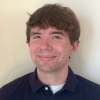
Can You Get a PhD Without an Advisor?
How I learned to take charge of my education and ask questions of the world
I applied to MIT to study nuclear power policy with three top experts in the field. Any of them would be great advisor, so I decided to come to MIT. In the six months between when I visited campus and the start of classes, the first professor retired, the second was promoted out of the department and stopped doing research, and the third one died. My plan for getting a PhD was suddenly less clear.
I’d like to say I had a moment of inspiration and immediately knew what to do, but honestly, it wasn’t that easy. Not having an advisor during my first year significantly reduced my research workload, but it also complicated my class scheduling and funding. I dreaded conversations with faculty who would ask “Who are you working with?” After countless long nights thinking about my future, I finally decided that I wanted to do the work I thought was important, and I didn’t want to change my focus based on what the remaining faculty were doing. All I needed to do was figure out how to be my own advisor.
Nuclear power policy lies at the intersection of highly technical issues, tedious and exacting bureaucracies, and deeply contentious political debates. Without an advisor, I spent most of my first year asking myself what questions weren’t being asked or answered in this field. What didn’t we know? I read books on the history and debate about nuclear power, studied the economics and performance of nuclear power plants, learned about the potential for advanced nuclear power plants, and scanned news feeds daily for any stories on nuclear power. I did everything I could to get an idea of what the industry had done and looked for a blind spot. What hadn’t they figured out yet? What questions were going unanswered?
Trying to review an entire field for open questions wasn’t easy. I didn’t have guidance on what to research, and I didn’t have any classmates in the same position. What I did have was an understanding of why I came to MIT in the first place: I want to make nuclear power work. So what wasn’t working in nuclear power, and what weren’t other people thinking about? Well, nuclear engineers are pretty bad at explaining nuclear power and proving to non-engineers that nuclear plants are safe.
Why is the process of getting licenses and proving the safety of plants so hard? How can we improve interactions between nuclear engineers and the public? When I looked around, I realized that no one was talking about this. I had found my opening: How can we safely build and license a new generation of safer, innovatively designed nuclear power plants that are completely different than existing nuclear plants to help fight climate change? This is the question I’m at MIT to answer.
I’ve found that getting a PhD is all about the question: what new question can you ask of the world, why is the answer important, and what will you do to answer it? In other words, if you don’t have a question in mind, having the best adviser isn’t going to necessarily help you.
An advisor can be an invaluable mentor to help understand the world, guide you towards your question, and find the best way to answer it. But at the end of the day, the PhD is about your question, not theirs. It’s about making your first novel contribution to a field, and while advisors can make the process a lot easier, it’s important to remember why you’re doing the work in the first place. Many graduate students find themselves without an advisor at some point, and that’s a great time to remember what brought you to graduate school and what questions you want to answer.
All this being said, don’t think that I’m disavowing academia completely. The answer to my question will lay at the intersection of the work of all the faculty in my department. In some ways, I need to leverage their expertise and experience so my answers make sense on their terms. Eventually, I’ll need to get an advisor (inside or outside of MIT) to review and sign off on my thesis, but I’ve still got a few years to figure that out. Why rush? For now, I’m answering a question important to the future of nuclear power and I’m in the place I need to be to answer it.
Share this post:
